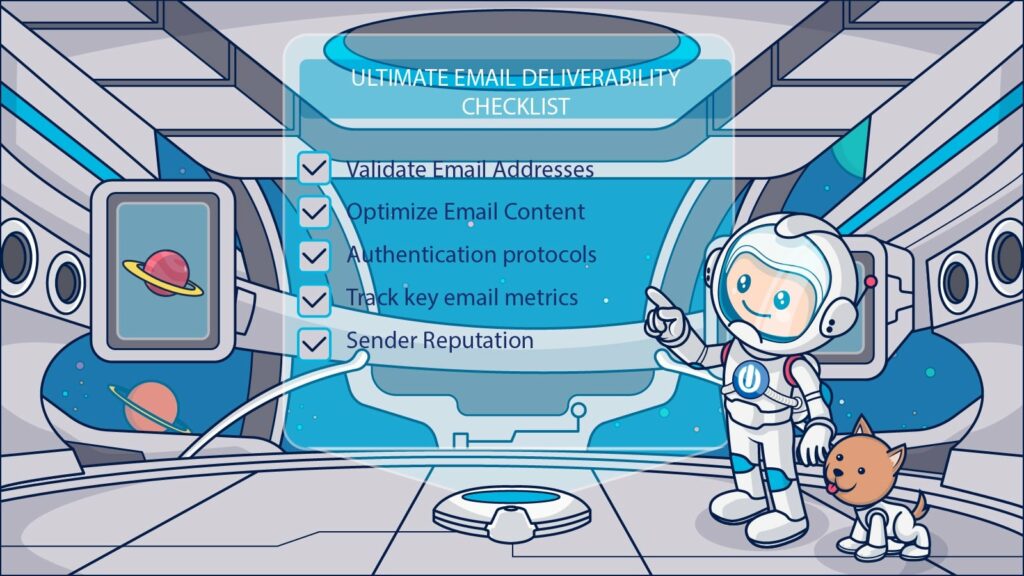The goal of every email marketer is to connect with people, nurture relationships, and spur those customers on to positive action.
To do this successfully, marketers must have access to the right kinds of customer information and the ability to understand the customer journey. More specifically, they must be able to identify the various crossroads that customers encounter on that journey.
Once a marketer knows that a potential customer is at a decisive point in their journey, their goal is to encourage a conversion to a sale to prevent lost revenue.
With email marketing software, there are a variety of different ways that marketers can attempt to bring about their desired outcome. A transactional email in the form of browse abandonment email is a key example.
What is a browse abandonment email?
A browse abandonment email is a type of triggered message that is automatically sent in response to specific user behavior.
Specifically, browse abandonment emails are sent out to customers who have left a company’s ecommerce website without adding any items to their cart.
The browse abandonment email can be easily confused with the abandoned cart email, which targets customers who have placed items in their cart but left without finalizing a purchase.
However, these are two distinct types of messages that have separate functions and focus on different steps of the customer journey.
What is the purpose of browse abandonment emails?
Only a small portion of an ecommerce site’s traffic ends up on its cart page. That means that by the time your brand sends out a cart abandonment email, you’ve already missed out on a lot of potential business.
Browse abandonment emails exist as a way for marketers to reach customers further upstream and encourage them to progress further along their journey.
When used effectively in a component of a larger strategy, they can be an extremely effective way to turn leads into sales.
Browse abandonment emails are most useful when site data indicates that visitors come to your site with purchase intent without placing items in their cart. Such visitors typically do the following:
- Visit your product pages.
- Use your site’s product search functionality.
- Explore your homepage and broad product categories.
The benefits of browse abandonment emails
There are two main pros to using browse abandonment emails.
Cost-effectiveness
It is often much faster, easier, and less expensive to reignite the interest of a previously engaged user than to target entirely new leads.
Sending out a browse abandonment email allows you to extract maximum value from the interest that you have already generated in a lead, saving you time and money.
Automated messages
Browse abandon emails are low-maintenance.
Though it may take some time initially to craft and set up a high-quality browse abandonment email, the upside is that it is automated.
That means that once the initial setup has been completed, you can let your email marketing software send out these automated messages while you reap the rewards.
However, the Achilles’ heel of browse abandonment emails is that they require consent, something that modern internet users are unlikely to give easily. As such, it may prove difficult to gain initial traction with browse abandonment emails.
How to use browse abandonment emails
When putting together browse abandonment emails, it’s important to keep in mind that you are communicating with users who have already bounced from your ecommerce site. That means that the content you send them needs to bring something new and appealing to the table.
Moreover, it’s important to choose the right moment to employ a browse abandonment email.
Rather than sending an email to users after their first visit to your online store, it may be more prudent to do so after they have viewed a specific page or product several times, as this indicates legitimate interest and purchase intent on their part.
You must also find creative ways to encourage visitors to willingly provide their email addresses to you. This is the main hurdle to overcome when using browse abandonment emails, but there are different ways to give visitors the nudge they need.
Below are some approach methods you can take to gain consent:
Incentives
At times, users may choose to leave your site to shop around and compare prices from other online stores. Offering incentives, such as discounts or access to special deals, can help you gain their consent, giving you an all-important in so that you might be able to convert them later on.
Special content
For some website visitors, the decision to abandon could be the result of insufficient information. Offering them the chance to gain exclusive information may be enough to pique their interest further and convince them to submit their details.
Conclusion
Browse abandonment emails are a useful way to bring visitors back to your ecommerce site when they have indicated some purchase intent.
Though it may be challenging to obtain the permission necessary to implement browse abandonment emails, the fact remains that they are a valuable tool that marketers can use to capitalize on interest and convert leads into sales.













